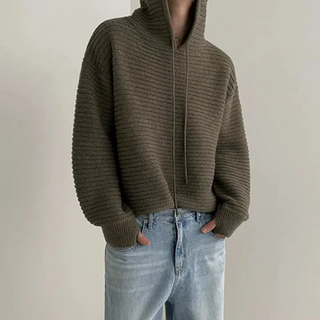
Korean Fashion: A Fusion of Tradition and Modernity
Korean Fashion seamlessly combines elements of tradition and modernity, making a captivating tapestry of styles. It draws inspiration in the rich history of Korea while embracing contemporary global the latest fashions. Key elements of Korean Fashion include:
Hanbok Influences: The hanbok, Korea's traditional clothing, has heavily influenced modern Korean Fashion. Designers often incorporate hanbok elements within their creations, whether through colors, silhouettes, or fabrics.
K-Pop Culture: The global success of K-pop has significantly impacted Korean Fashion. K-pop idols and their distinct style have grown to be fashion icons, inspiring fans all over the world.
Streetwear Sensation: Korean streetwear is recognized for its boldness and experimentation. It's characterized by oversized garments, graphic prints, and unconventional accessories. Streetwear is particularly popular among younger people.
Minimalism: Clean lines, neutral colors, and simple yet elegant designs are prominent in Korean Fashion. Minimalist fashion often prioritizes comfort and functionality.
Mix-and-Match Aesthetics: Koreans have ability to combine diverse clothes, resulting in stylish and eclectic outfits. This approach encourages self-expression and creativity.
The Role of Seoul like a Fashion Hub
Seoul, the administrative centre of South Korea, has emerged as a global fashion hub, drawing attention from fashion enthusiasts and industry insiders. The city's vibrant street fashion scene, bustling shopping districts, and influential fashion weeks have propelled it onto the international fashion stage. Notable designers, for example Demna Gvasalia of Vetements and Balenciaga, happen to be inspired by Seoul's unique fashion culture.
Inclusivity and variety
Korean fashion sticks out for its inclusivity and also the celebration of diverse beauty standards. While it has traditionally upheld strict beauty ideals, the industry is undergoing a transformation. Models of various ethnic backgrounds, body types, and gender identities are gaining prominence, challenging conventional standards and fostering a more inclusive environment.
Sustainable and Ethical Practices
Korean Fashion brands are increasingly focusing on sustainable and ethical practices. Most are adopting eco-friendly materials, transparent supply chains, and fair labor practices. As sustainability becomes a global concern, the Korean Fashion industry is actively embracing these changes.
Global Influence and Popularity
Korean fashion has transcended its borders, garnering a passionate global following. International fashion weeks feature Korean designers, and Korean clothing brands are expanding their reach into overseas markets. The worldwide appetite for Korean beauty items has also helped introduce fashion to some broader audience.
Korean Fashion's Likelihood
The future of Korean Fashion appears promising, since it continues to evolve and expand its reach. The industry's ability to blend tradition with modernity, embrace inclusivity and sustainability, and hang trends that resonate having a diverse audience underscores its enduring appeal.
Korean Fashion is not just about clothing; it's really a cultural statement, an art form, and a life style. It's a reminder that fashion is a universal language that transcends borders and connects people worldwide. You may be a trendsetter, a way enthusiast, or simply just someone who appreciates unique style, Korean Fashion has something extraordinary to offer.